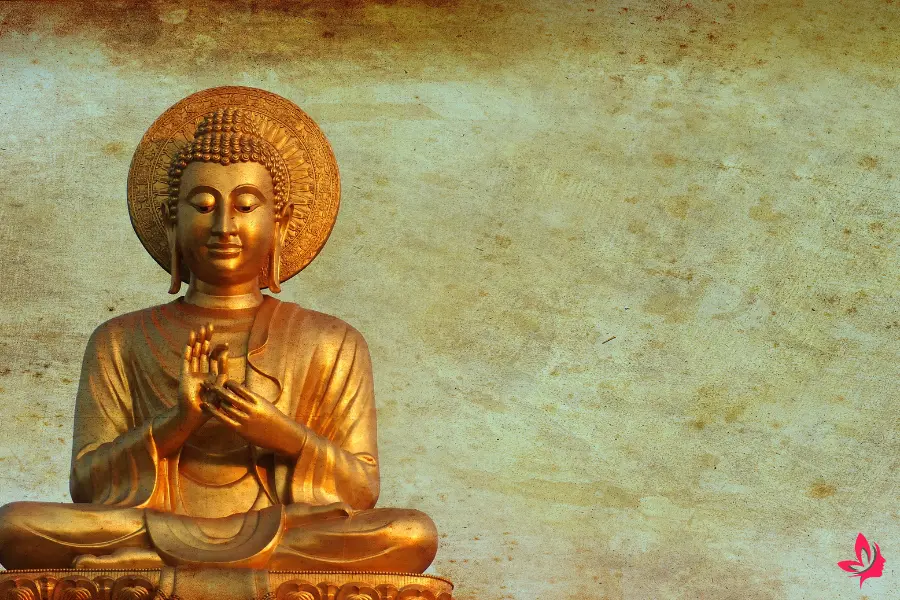Buddhist leadership is deeply rooted in principles that foster authenticity and compassion.
The core concept emphasizes leading with moral integrity, vision, and compassion, which aligns leaders with the Buddhist Eightfold Path.
This approach encourages individuals to inspire others towards a common goal without dominating or controlling them.
These concepts introduce a refreshing perspective in a world where leadership often equates to authority and control. Compassion and transparent purpose guide decision-making and define ethical boundaries.
Leaders who practice these principles may see their communities thrive due to an environment emphasizing mutual respect and personal growth.
Exploring Buddhist leadership offers potential solutions if you face challenges aligning leadership with ethical values. It provides insights into maintaining transparency and authenticity in leadership roles, ultimately fostering trust and unity among followers.
These strategies offer innovative ways to cultivate a culture that promotes harmony and shared goals.
Understanding the Leadership of Buddhism

Buddhism’s leadership emphasizes ethical conduct, compassion, and the importance of guiding others toward enlightenment.
Buddhist leaders often prioritize spiritual growth and moral integrity over personal gain or political power, aligning their actions with core teachings such as the Four Noble Truths and the Noble Eightfold Path.
The Role of Buddhist Monks in Leadership
Buddhist monks hold significant leadership positions within their communities. They act as spiritual guides, imparting wisdom and teachings from sacred texts and centuries-old traditions.
These monks lead by example and embody principles like non-attachment and mindfulness. This leadership style is not just about governance; it centers on nurturing a community that follows the path of the Dharma.
Monks teach the importance of more equitable wealth distribution and compassion through verbal teachings and daily practice.
Within Buddhist monasteries, monks also facilitate meditation practices and moral education. This helps to maintain a cohesive community united in shared values and spiritual goals.
Focusing on self-discipline and service, Buddhist monks manifest a distinctive spiritual leadership that influences religious followers and organizational leaders today.
Siddhartha Gautama: The Founder of Buddhism and Leadership
Siddhartha Gautama, or the Buddha, is the original architect of Buddhist leadership. His leadership qualities included wisdom, compassion, and a clear vision for alleviating human suffering.
Gautama spent many years seeking enlightenment and ultimately shared his discoveries with others, transforming countless lives.
Fundamental to his leadership was the Noble Eightfold Path, a guideline for achieving ethical and mental development. His teachings emphasized understanding the human mind and right intention, and they remain highly relevant to modern leaders.
By applying Gautama’s insights, leaders learn to cultivate emotional intelligence and right action, fostering inclusive missions that promote social good and personal well-being.
Key Teachings from the Pali Canon on Leadership
The Pali Canon, a collection of Buddhist scriptures, provides essential guidance on leadership. It outlines how great leaders should embody virtues like the right view, speech, and effort.
The Canon emphasizes that effective leadership is rooted in ethical behavior and mindfulness. Leaders are encouraged to prioritize self-awareness, focus on the right concentration, and maintain moral integrity.
Buddhist philosophy teaches that wise leaders seek personal success and the welfare of sentient beings.
This approach to leadership involves balancing rational thinking with compassionate intentions, a practice that has been applied by renowned figures like the current Dalai Lama and Thich Nhat Hanh.
These teachings inspire leaders across cultures, offering a deeper understanding of how spiritual principles can inform and enhance leadership practices.
Core Principles of Buddhist Leadership

Leadership in Buddhism centers around guiding others with compassion, mindfulness, and ethical conduct. These principles emerge from profound teachings encouraging leaders to act with awareness and purpose.
The Four Noble Truths and Their Impact on Leadership
The Four Noble Truths are central to Buddhist philosophy. They suggest that suffering exists but can be overcome with proper insight.
These teachings can impact leadership by fostering an attitude of compassion and understanding among leaders. A leader aware of these truths recognizes the inevitable challenges of guiding others and seeks to alleviate suffering by promoting well-being and supportive environments.
Right Action and Right Intention in Leadership Styles
Right Action and Right Intention are aspects of Buddha’s Noble Eightfold Path. They emphasize ethical behavior and purposeful decisions.
Leaders who adopt these principles act with integrity and honesty, ensuring their actions align with their values. This ethical framework guides them to foster trust and respect within their teams.
In today’s world, adopting a leadership style that prioritizes moral conduct can lead to more cohesive and effective organizations. This alignment with Buddhist teachings helps leaders create environments where cooperation and trust are paramount.
Leadership Qualities Derived from Buddhist Philosophy
Leadership qualities from Buddhist philosophy include compassion, wisdom, and mindfulness. These values are crucial for leaders who seek sustainable success.
Compassionate leadership involves understanding complex human emotions and responding with kindness. Mindfulness helps leaders remain present and attentive, ensuring thoughtful decision-making.
Moreover, wisdom allows leaders to make informed choices rooted in a deep understanding of human beings and the world around them.
Leaders influenced by the Buddhist approach often demonstrate resilience and commitment to the welfare of others, which are fundamental in navigating today’s complex challenges.
By embodying these principles, leaders can positively influence their communities and organizations. This emphasis on spiritual leadership drives a broader vision of promoting peace and harmony.
Leadership Styles in Buddhist Tradition

Leadership styles in the Buddhist tradition draw from ancient teachings that emphasize mindfulness, compassion, and wisdom.
Leaders are expected to embody these qualities while fostering an environment encouraging participation and understanding.
Zen Buddhism and Its Approach to Effective Leadership
Zen Buddhism, a major branch of the Buddhist tradition, emphasizes simplicity, mindfulness, and clarity. Effective leadership in Zen Buddhism often revolves around the practice of mindful awareness.
A leader is encouraged to maintain a clear mind and focus on the present moment. The Zen approach believes that this mindful awareness allows leaders to make balanced and thoughtful decisions.
Zen leaders inspire others by living the values they teach, such as right action and right mindfulness, two components of the Buddha’s Noble Eightfold Path.
Zen Buddhist leaders develop skills that promote inner peace and harmony through activities like meditation and reflection.
This leadership style is not just about authority but about serving as a guide for continual learning and self-improvement.
Charismatic Leadership in the Context of Buddhism
The founder’s life, Siddhartha Gautama, also known as the Buddha, influences charismatic leadership in Buddhism. His magnetic personality and profound wisdom helped spread his teachings across Southeast Asia.
Charismatic leaders in Buddhism often deeply understand Buddhist philosophy and can inspire others through their knowledge and moral conduct.
These leaders attract followers by embodying key leadership qualities, such as compassion and courage. They are adept at communicating a clear vision and embodying the principles of right speech and right intention.
This leadership style can be particularly effective when rallying support for communal or spiritual goals.
Participative Leadership: A Buddhist Perspective
Participative leadership in Buddhism reflects the idea of shared responsibility and community involvement. This approach draws inspiration from the early monastic order established by the Buddha, where decision-making was often a collective process.
Buddhist leaders value the input of all community members, recognizing that wisdom can arise anywhere within the group.
Participative leaders foster a sense of belonging and shared purpose by engaging followers in decision-making. This approach supports the Buddhist emphasis on interconnectedness and mutual respect.
Engaging followers in discussions about common goals encourages growth and ensures that decisions reflect the broader community’s needs and values.
The Influence of Buddhist Teachings on Modern Leaders

Buddhist teachings, such as the Four Noble Truths and the Eightfold Path, are vital elements in shaping the approach of modern leaders. Understanding these philosophies can lead to a leadership style emphasizing compassion, ethical conduct, and self-awareness.
Lessons from the Current Dalai Lama on Leadership
Buddhist teachings from the Current Dalai Lama emphasize compassion and ethical conduct. He encourages leaders to foster peace and positivity.
Compassion is central to his leadership messages, as seen in his interactions with diverse groups and decision-making processes.
He demonstrates that leaders can effectively address social and political challenges by focusing on compassion and empathy. His approach to leadership education involves spreading kindness and respect, shaping his influence across varied communities.
How Great Leaders Incorporate Buddhist Values
Great leaders incorporate Buddhist values by focusing on ethical principles like right action and speech. The leadership qualities of leaders such as Mahatma Gandhi and Nelson Mandela reflect these teachings.
They prioritized social justice, nonviolence, and equality, embodying Buddhist principles in their leadership styles.
These leaders have contributed to positive societal changes by valuing truthfulness and integrity. Siddhartha Gautama’s teachings were a foundation for their actions, inspiring modern leaders to pursue peace and fairness.
The Role of Emotional Intelligence in Buddhist Leadership
Emotional intelligence plays a significant role in Buddhist leadership. Recognizing and managing one’s emotions and developing empathy for others is integral to effective leadership.
Buddhist practices, like mindfulness and meditation, support emotional balance and awareness.
Through these practices, modern leaders can improve their decision-making and interpersonal skills. Emotional intelligence helps them understand team dynamics, fostering cooperation and achieving common goals.
Focusing on inner reflection and understanding enhances leadership effectiveness and nurtures a healthier work environment.
Challenges and Opportunities in Buddhist Leadership

Buddhist leadership introduces unique ways to address challenges and discover opportunities through Buddhist teachings. Key aspects include managing personal attachments, understanding political influence, and upholding ethical standards.
Overcoming Excessive Attachments in Leadership Roles
Buddhist leadership emphasizes the importance of overcoming excessive attachments for effective leadership.
Siddhartha Gautama, the founder of Buddhism, taught that letting go of attachments leads to a clearer vision and greater leadership qualities.
Leaders face challenges when personal biases interfere with their ability to make unbiased decisions.
The Buddhist philosophy encourages leaders to practice right mindfulness. This promotes self-awareness and reduces emotional biases.
Practices from Zen Buddhism help leaders remain in the present moment. This allows them to approach challenges with a calm mind, ultimately benefiting their organizations’ shared goals.
Addressing Political Power Through a Buddhist Lens
Addressing political power through a Buddhist lens involves integrating principles like the Four Noble Truths and the Eightfold Path into leadership practices.
Political leaders often face pressures that test their integrity. Buddhist teachings emphasize right action and right intention, steering leaders away from corrupt practices.
The current Dalai Lama, a wise leader, shows that political power can align with a spiritual leadership approach.
Leaders informed by Buddhist tradition focus on serving the community rather than personal gain. This shift enhances their credibility and fosters universal love and compassion among followers.
The Importance of Hard Work and Moral Code
A strong moral code and commitment to hard work are central to Buddhist leadership. Monastic orders, especially in regions like Sri Lanka, emphasize ethical conduct, as seen in sacred texts such as the Pali Canon.
Right effort and speech form the backbone of leadership ethics, ensuring leaders act with integrity.
Buddhist monks exemplify the dedication needed for leadership success. This commitment inspires followers and helps establish trust within the community. Focusing on hard work within the Buddhist community enables leaders to achieve sustainable economic development and social reform, reinforcing the long-term success of their organizations.
The Future of Buddhist Leadership in Today’s World

Buddhist leadership increasingly influences modern society, emphasizing compassion, mindfulness, and ethical behavior. Insights from Buddhist teachings such as the Four Noble Truths and the Noble Eightfold Path offer valuable lessons for creating more equitable and mindful communities.
These principles can be seen in different arenas today, promoting transformative opportunities.
Economic Development and Social Reform in Southeast Asia
In Southeast Asia, Buddhist leadership plays a significant role in fostering economic growth and social reform. Buddhist monks often engage in community projects that improve infrastructure and education, helping societies evolve sustainably.
Their leadership style blends compassion with effective decision-making to address local challenges, creating a more inclusive development model.
Buddha’s teachings, particularly on reducing excessive attachments and spreading universal love, can be adapted to manage resources wisely and promote fair wealth distribution. Buddhist leaders can inspire transformative change by emphasizing the right livelihood and ethical economic policies.
The Role of Buddhist Monasteries in Community Leadership
Buddhist monasteries serve as spiritual and social guidance centers, significantly impacting community leadership. They use their influence to encourage compassion and ethical living, setting the stage for positive social interactions.
The monastic order often provides important leadership qualities, such as integrity and a clear vision, essential in guiding communities.
These monasteries act as safe spaces for dialogue and learning, promoting inclusive missions and leadership skills that nurture societal well-being. Teaching dharmic practices contributes to peace and stability by equipping individuals with tools like right intention and mindfulness.
Building a More Equitable Society: A Buddhist Approach
A Buddhist approach to building an equitable society focuses on compassion, ethics, and the cessation of suffering. Following the teachings of Siddhartha Gautama, leaders can employ the principles of transformational leadership to promote social justice and equality.
Buddhist philosophy encourages reducing social pressures and working toward common goals for the benefit of all.
Leaders inspired by Buddhist ethics can balance power and responsibility by fostering environments that prioritize well-being over material gain. This approach benefits individuals and strengthens community ties, contributing to a more harmonious society.
Integrating Buddhist Leadership in Organizational Settings

Buddhist leadership influences various aspects of an organization. It focuses on ethical decision-making and inclusive mission statements that foster a supportive and harmonious work environment.
Leadership Skills Inspired by Buddhist Ethics
Buddhist ethics emphasize mindfulness, empathy, and self-awareness. Leaders who draw from these ethics often practice active listening and compassionate communication.
This approach enhances their ability to resolve conflicts effectively and make decisions that benefit the team.
Using mindfulness, leaders create an atmosphere where employees feel valued and heard. This leads to better collaboration and higher morale.
Empathy allows leaders to understand diverse perspectives and foster a sense of belonging. Self-awareness helps leaders recognize their strengths and weaknesses, promoting continuous personal and professional growth.
Creating an Inclusive Mission in the Workplace
Incorporating Buddhist values in organizational missions encourages inclusivity and collective purpose. A mission inspired by these principles highlights shared goals, mutual respect, and the well-being of all employees.
Leaders strive to ensure that every team member understands their role in achieving organizational objectives.
An inclusive mission seeks to balance individual and group needs. This harmony helps employees feel connected and motivated.
Leaders often engage staff through open forums and discussions, encouraging their input in shaping the mission. This approach nurtures a more substantial commitment to organizational goals and fosters a positive work environment.
The Impact of Buddhist Philosophy on Organizational Culture
Buddhist philosophy promotes a culture of compassion and integrity within organizations. An environment influenced by these principles encourages accountability, openness, and trust.
Leaders focus not only on profitability but also on the holistic development of their employees.
Organizational practices may include regular meditation sessions or mindfulness workshops, allowing staff to unwind and refocus.
These practices reduce stress levels and increase job satisfaction. Encouraging such activities not only helps individuals but also boosts overall productivity.
Organizations adopting Buddhist principles often enjoy a welcoming and supportive culture, making them attractive employers.
The Role of Compassion in Buddhist Leadership

Buddhist leadership emphasizes the role of compassion in guiding leaders toward ethical and effective practices. This philosophy suggests leaders focus on empathy and thoughtful decision-making, benefiting individuals and communities.
Cultivating Empathy as a Leadership Trait
In Buddhist philosophy, empathy is a cornerstone of a compassionate leadership style. Leaders trained in Buddhist monasteries aim to understand the needs of others and recognize the emotional states and struggles of those around them.
This empathetic approach helps leaders make decisions that are considerate and fair.
Empathy encourages leaders to look beyond personal gains and focus on the well-being of all sentient beings. By fostering connections with others, leaders can build trust and inspire accurate self-awareness.
Buddhist monks often practice mindfulness and compassion exercises to enhance their empathy, strengthen connections with their communities, and promote a happier life.
How Compassion Drives Effective Decision-Making
Compassionate leaders in the Buddhist tradition employ compassion in decision-making processes. The Buddha’s teachings in the Pali Canon stress the importance of right intention and right action.
These are key components of the Noble Eightfold Path, which guides decisions that minimize suffering and engender positive outcomes.
By incorporating compassion, leaders can align their actions with universal love and moral codes. This approach leads to leadership qualities that emphasize a clear vision balanced with the needs of communities.
Effective leadership ensures that decisions are ethical and equitable, reducing excessive attachments and empowering others.
Compassionate decision-making by a credible leader, like the current Dalai Lama, demonstrates how compassion can enhance the leadership quality of those in power.
Final Thoughts
The leadership of Buddhism emphasizes selflessness and the welfare of others. Buddhist leaders must combine humility with wisdom to guide their followers effectively.
In practice, leadership within Buddhism often involves being responsible, honest, and making sacrifices when necessary. These traits are seen as essential for genuine and ethical leadership.
When leaders embrace these principles, they create environments grounded in trust and compassion. Leaders can inspire their teams to work harmoniously by being mindful and tolerant.
Here are some key takeaways:
- Selflessness: Leaders should prioritize others’ needs.
- Humility: Genuine leadership requires a humble approach.
- Honesty: Truthfulness cultivates trust and respect.
- Mindfulness: A mindful leader remains thoughtful and constructive.
- Responsibility: Taking charge effectively is crucial for guiding others.
Frequently Asked Questions
Buddhist leadership emphasizes compassion, wisdom, and guidance without attachment to power. Leaders are seen as guides who encourage personal growth and ethical behavior in others.
What is the leadership in Buddhism?
Leadership in Buddhism involves guiding others with compassion and understanding, focusing on ethical conduct and personal growth. Leaders encourage mindfulness and the pursuit of wisdom.
What is the leader called in Buddhism?
In Buddhism, leaders are often referred to as monks or teachers. They are respected for their knowledge and spiritual guidance.
Is Buddhism a god or leader?
Buddhism does not worship a god but follows the teachings of Siddhartha Gautama, the Buddha. The focus is on achieving enlightenment through personal practice.
How are Buddhist leaders chosen?
Buddhist leaders, such as monks or abbots, are typically elected or appointed based on their experience, understanding of teachings, and dedication to the community.
What does the Dalai Lama say about leadership?
The Dalai Lama views leadership as an act of service. He believes leaders should be compassionate and strive to benefit others.
What is the final goal of Buddhism?
The final goal of Buddhism is reaching Nirvana, a state of liberation from the cycle of birth and death. It represents ultimate peace and freedom from suffering.
How does Buddhism show servant leadership?
Buddhism exemplifies servant leadership by prioritizing the welfare of others over self-interest. Leaders foster a supportive environment that promotes ethical living and mindfulness.
What are the major beliefs of Buddhism?
Buddhism teaches the Four Noble Truths, the Eightfold Path, and the importance of meditation. It emphasizes compassion, impermanence, and the quest for enlightenment.
Who is the founder or leader of Buddhism?
Siddhartha Gautama, known as the Buddha, founded Buddhism. His teachings form the foundation of Buddhist practice.
What leader converted to Buddhism?
Emperor Ashoka, an ancient Indian ruler, famously converted to Buddhism. His support helped spread Buddhist teachings far beyond India.
What does the Dalai Lama do?
As a spiritual leader, the Dalai Lama provides guidance on ethical living and compassion and advocates for peace and human rights.
What are the ranks in Buddhism?
In Buddhism, the ranks typically include lay followers, monks, nuns, and senior monastic leaders. Each rank holds different responsibilities and levels of spiritual commitment.




